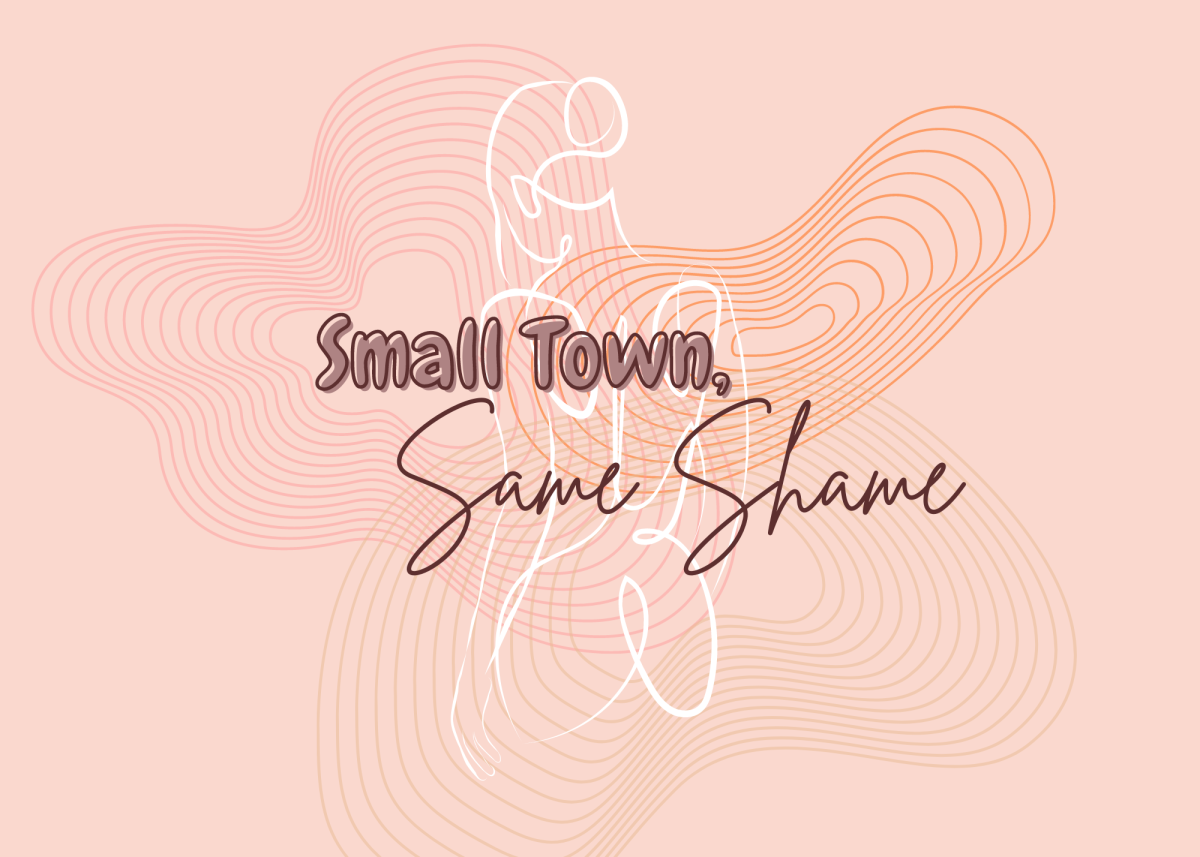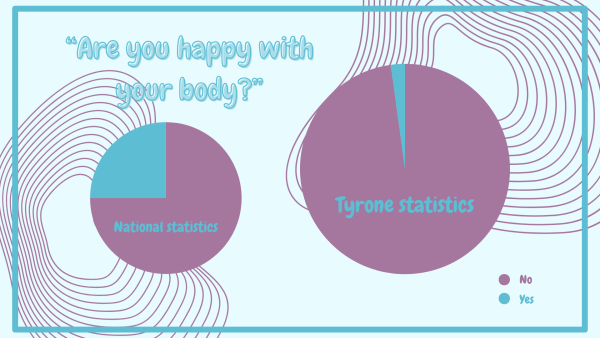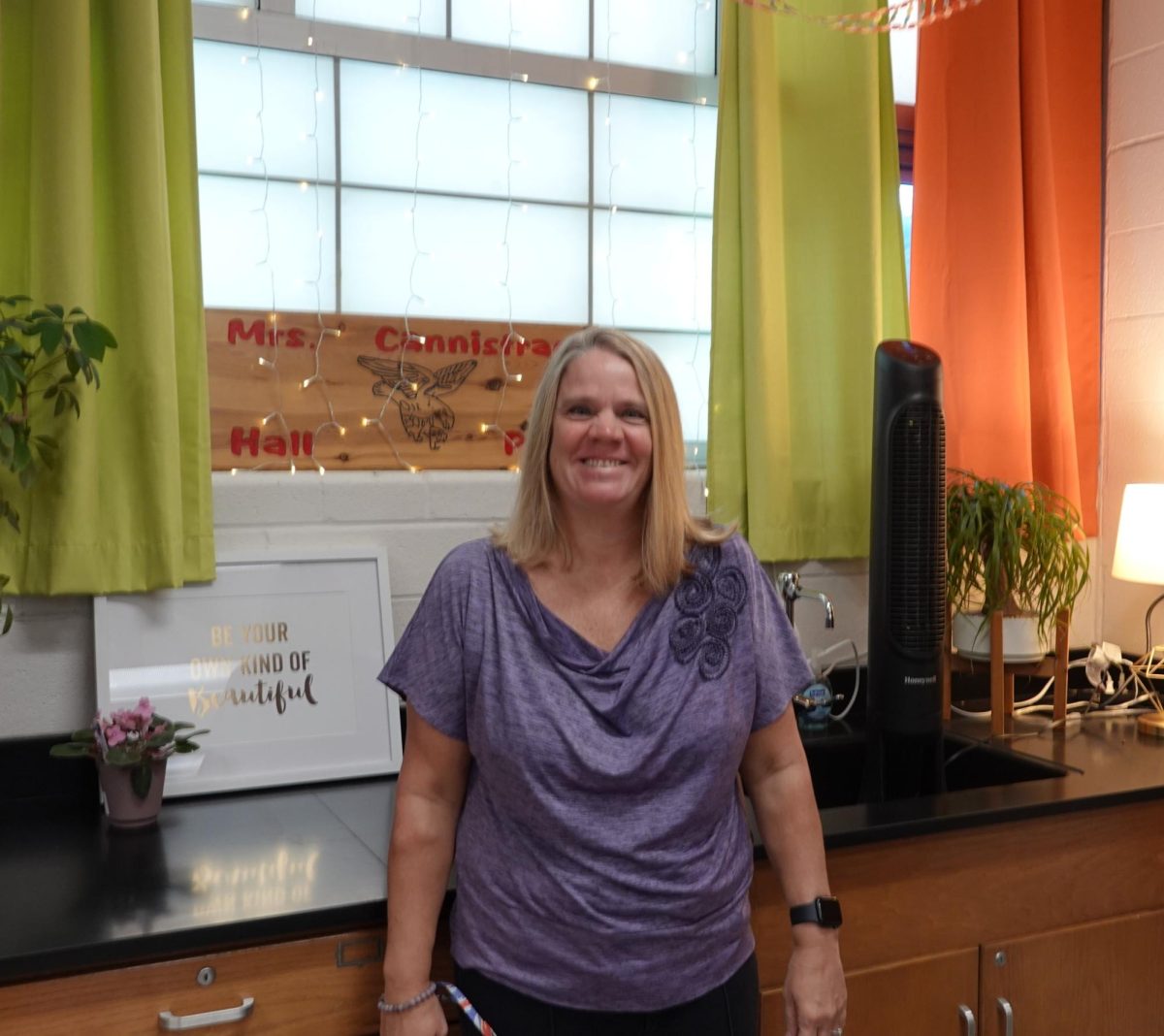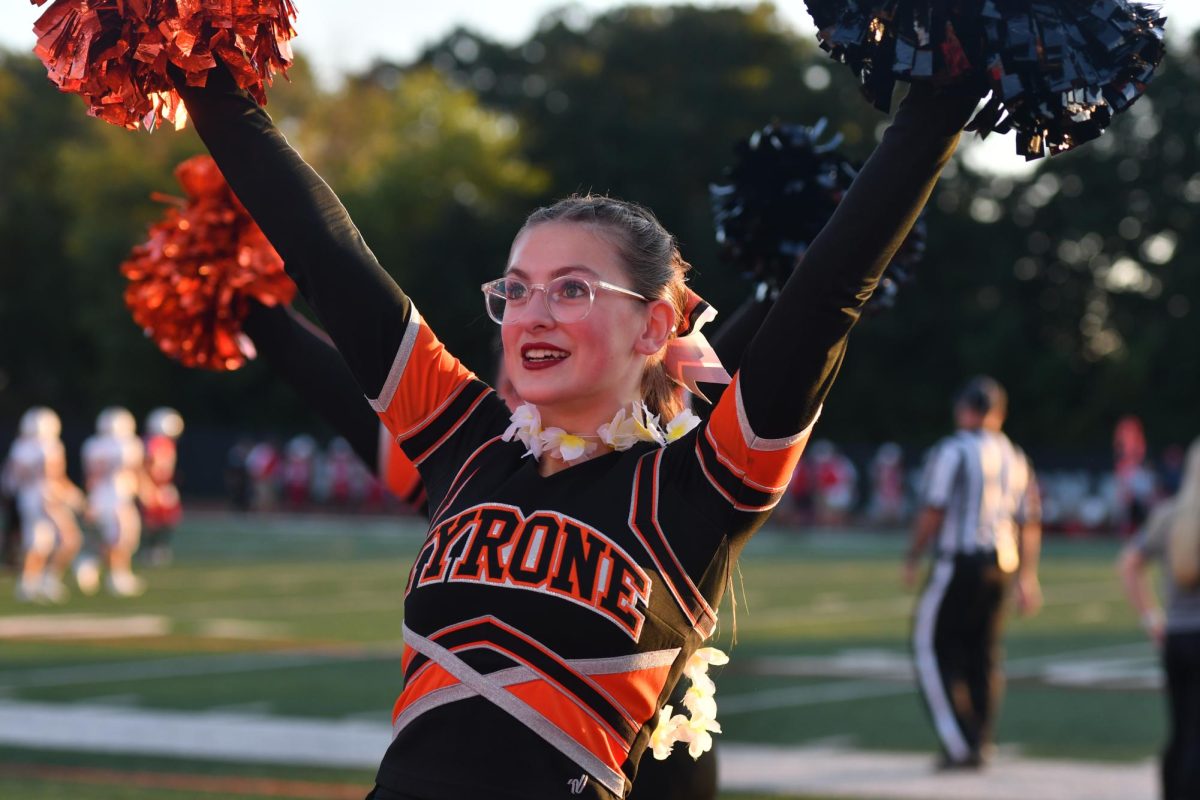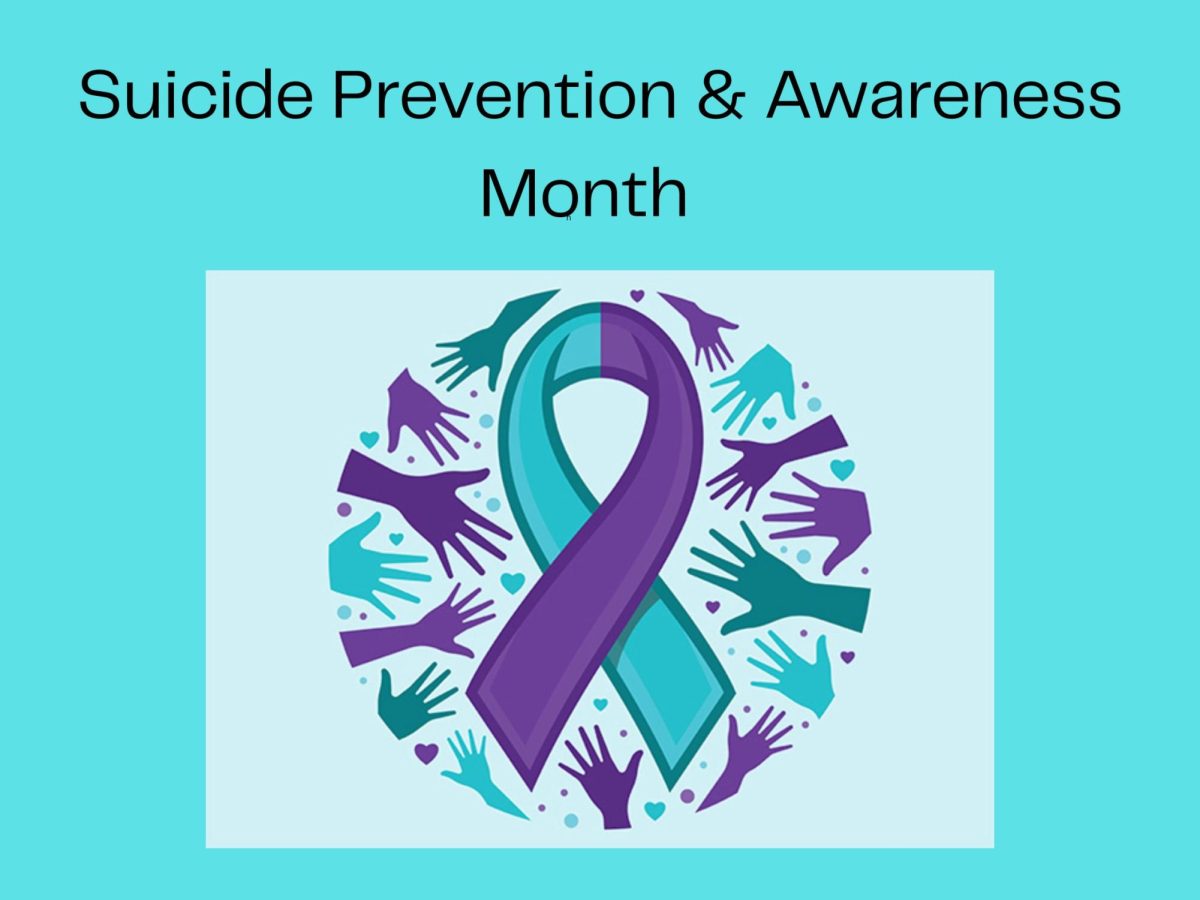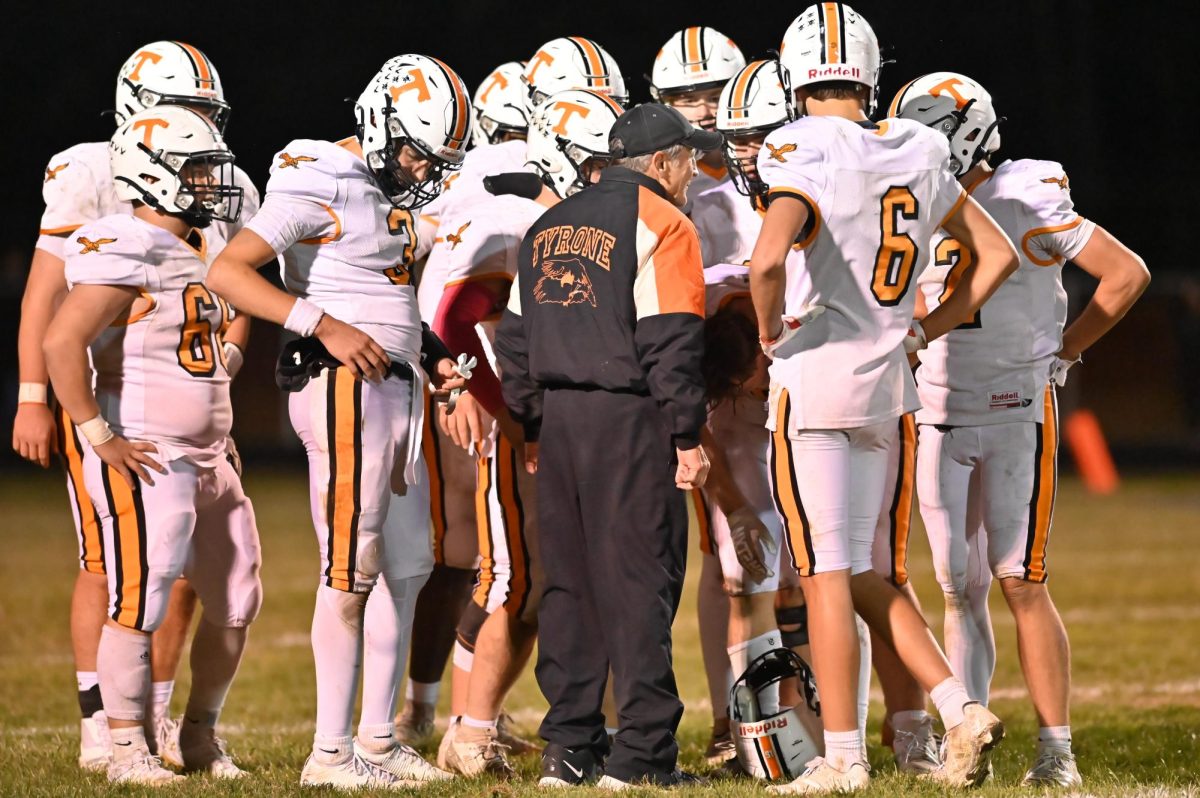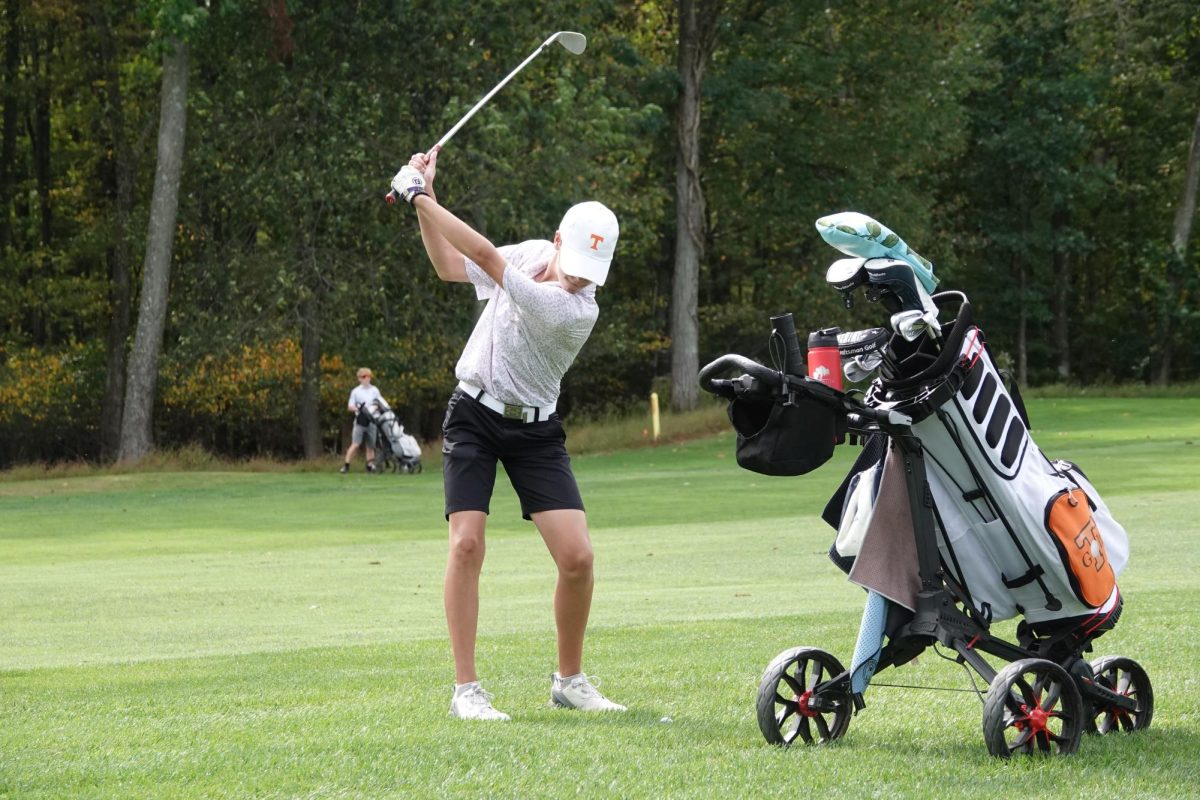“I don’t understand [why] people always assume why they have a right to opinions toward other people’s bodies,” said one Tyrone student in response to an Eagle Eye survey.
Entering the warmer months of the year, there is constant mention of working on one’s “summer body.” More revealing, lightweight clothing fills stores, Instagram feeds flood with bikini pictures and glamorous vacations, and all eyes go on people’s appearances.
In a world that is already torched with body shame and disordered eating, this is exactly what fuels the flame.
One study conducted by the National Organization for Women found that by the age of seventeen, 78% of girls report being “unhappy with their bodies.” Nearly 80% of young women also report having the fear of “getting fat”, with many claiming that they do not feel thin enough for society’s standards.
According to a survey cited by Psych Central, a saddening 97% of women have had what they classify as an “I hate my body” moment, much of these moments happening quite frequently starting from a young age. These moments came as a result of a variety of causes, one of the most notable being the comments or actions of others negatively reflecting one’s body.
To explore how the Tyrone community compares to these national trends, a survey was sent to Tyrone Area High School female students in grades 9-12. This survey was optional and responses were kept completely anonymous. We received 46 responses from the students.
The responses gathered confirm a sad truth: body shame knows no boundaries… not even in a small town.
Nearly 96% percent of the students who responded to the survey reported having unnecessary or harmful comments made about their bodies, over half citing multiple experiences with people that they both knew and did not know. One student recalled a specific incident that had stuck with her.
“Once, I was called fat by someone close to me, shaming me for eating too much. At that time, I wasn’t really eating a lot, so it made me feel ashamed and upset,” said one of Tyrone’s female students.
Comments about weight tend to be the most common made toward students, with 91% of participants reporting receiving such remarks.
The second most frequent comments that students reported getting are about their figures or curves/body types (71% of participants).
A significant portion of the students who took part in this survey noted that it was their peers who commented on their bodies the most. Over 56% of female students reported feeling very unsafe from these comments at school, which was the place that felt most targeted by others.
Young females across the country have not only been influenced by society to dislike their bodies but have also shown that they are largely seen as sexual objects.
Almost half of the students who responded to this survey cited receiving many sexually motivated comments, many sharing specific experiences.
“Boys have constantly commented on my butt and how they quote ‘want to rape’ me. It makes my stomach churn and makes me want to literally vomit,” one student said.
“It was a comment on my torso,” said another, “claiming that it made me hot and attempting to press me to send pictures. I of course denied, but I felt uncomfortable being around them anymore.”
One student cited a particular comment made to her, saying the following: “‘Look at those curves. I want to put my hands on them.’ It made me feel extremely uncomfortable, I wanted to hide myself.”
With the endless amount of disgusting and unprecedented comments received by young girls each day, it is no wonder why disordered eating and overall body hatred are statistically on a sharp incline.
Tyrone’s female population even exceeds already discouraging eating disorder statistics, making body image impacts hard to ignore.
As compared to the 75% of American women who have been found to engage in disordered eating behaviors, nearly 98% of student respondents reported engagement in actions with the intent of changing their weight/appearance. Roughly 89% of these actions focused on taking small portions of food or skipping meals entirely.
Many of the participants in this survey made note of how important this issue is in the world today. Almost all of these girls highlighted very strong feelings in their responses, giving their hopes for a future that facilitates less stigma around the female body.
“This is a very important topic… we need help. Women need help,” one student said.
“I hope that anybody who struggles can get the help that they need. It is ridiculous that people have to deal with this stuff today,” said another.
“All women are beautiful, and it is not our fault that the world puts this insane filter on what beauty really is.”



